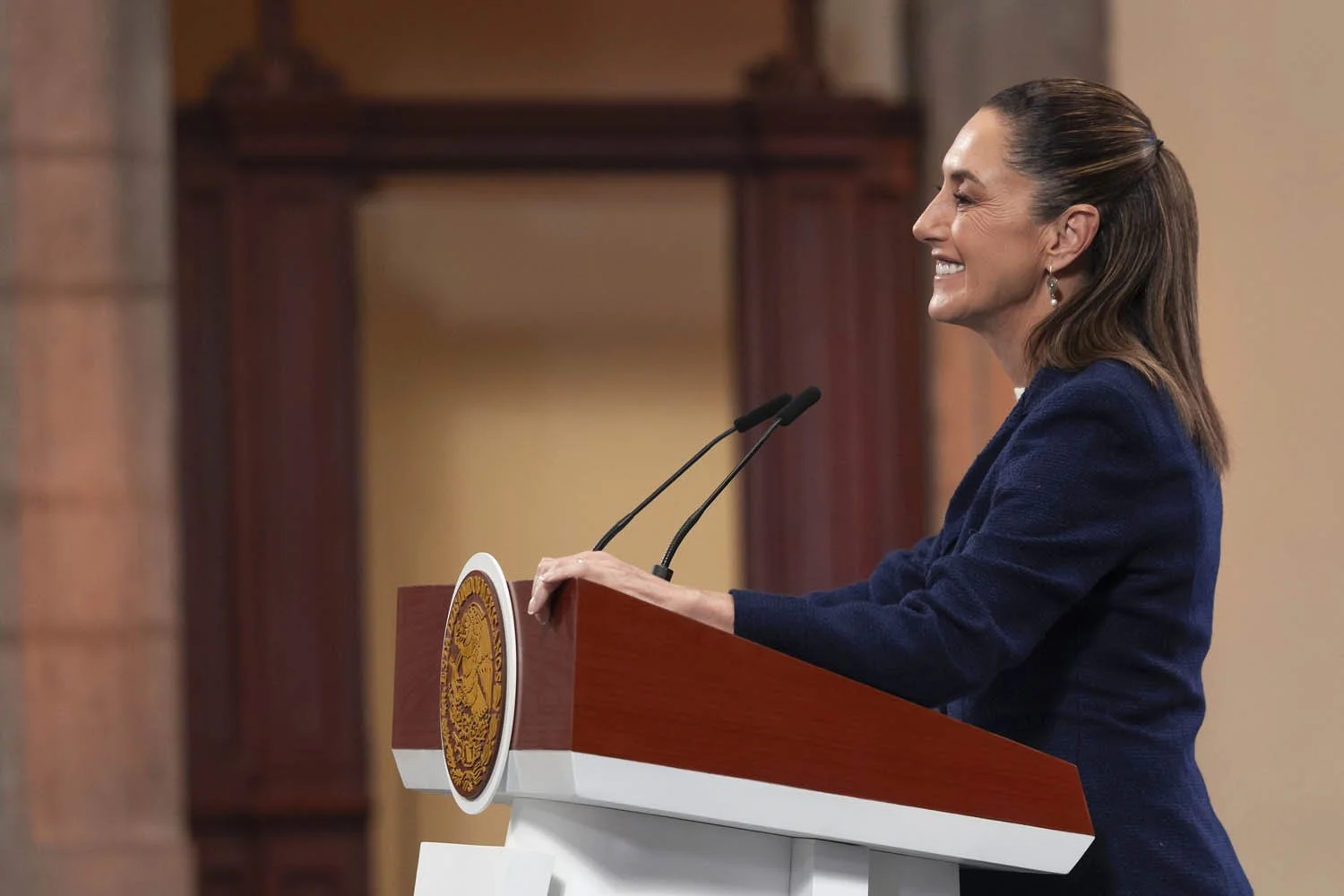Does Mexico have a bargaining advantage over Canada?
by David Agren, writer-at-large.
Mexico expelled 26 narco bosses to the United States on Wednesday, responding to the Trump administration to crack down on drug cartels. Among those expelled were Servando Gómez Martínez, “La Tuta,” a former mouthpiece for La Familia Michoacana.
It resembled a similar expulsion of 29 narco bosses – including Rafael Caro Quintero, a man long sought by the Drug Enforcement Administration for the 1985 killing of agent Enrique (Kiki) Camarena.
President Claudia Sheinbaum defended handing over the capos as “sovereign decisions” and stating, “The decision is for our country’s security.”
The expulsions followed revelations in The New York Times that US President Donald Trump quietly signed a directive allowing the use of military force against terror organizations in the Western Hemisphere. Those terror organizations include Mexican drug cartels.
Sheinbaum immediately responded: “We co-operate, we collaborate, but an invasion is not going to happen. … It’s absolutely out of the question. … When they’ve raised the issue, we’ve always said no.”
But the expulsions show the willingness of Mexico to placate Trump as the two countries attempt to hammer out a security agreement. It also shows how heavy the ask has been for Mexico.
The US Embassy in Mexico published a list of 10 achievements to “build safer, stronger and more prosperous countries” to mark the 90 last days – which coincide with the early term of Ambassador Ronald Johnson. The list included, “The most secure border in history,” “55 high-profile cartel-related criminals transferred from Mexico to the US” and fentanyl deaths declining in the US – to name three.
Then Trump vented his real feeling on Thursday, saying in the White House, “Mexico does what we tell them to do and Canada does what we tell them to do.”
That statement seemed to contradict with Johnson’s sunny statement. But the disrespect coincided with comments from Pete Hoekstra, the US ambassador to Canada, who has called Canadians, “mean and nasty” for not vacationing in the US and banning US booze in government liquor stores.
Hoekstra has complained about Canada applying countervailing tariffs – something Mexico and most countries avoided – and told Global News, “Canada is the country that has pulled the rug out from USMCA.”
“There’s two countries that have been relatively harsh against the United States, and that’s China and Canada,” Hoekstra said.
Canada has caved to Trump – not unlike Mexico.
It rescinded the Digital Services Tax, which would have imposed levies on tech companies, after Trump broke off trade negotiations over the issue. But it continues with its outward ethos of “elbows up” – hockey parlance for playing rough and protecting yourself.
In the meantime, Canada has courted Mexico as a potential ally in trade talks. The private sector has taken the lead, seeing Mexico as a logical market to develop as trade diversification becomes important.
Some politicians have tried to mend fences. Alberta Premier Danielle Smith travelled to Mexico City this week, meeting with business leaders and foreign relations officials. She spoke glowingly of Mexico and its importance as a market for Alberta agricultural products and opportunities in the energy sector.
But she had to live down comments that ruffled feathers in Mexico. She said in November, “The real issue we have is that Mexico has not been that equal partner with the United States. In addition to that, they’re inviting China to engage in investment in Mexico.”
Smith’s trip was preceded by a two-day visit from two senior Canadian cabinet members Finance Minister François-Philippe Champagne and Foreign Affairs Minister Anita Anand. They wanted to rekindle relations – a priority for Prime Minister Mark Carney.
But their trip had some auspicious moments. Mexican Foreign Minister Juan Ramón de la Fuente skipped a reception held at the Canadian ambassador’s residence for the visiting ministers.
Sheinbaum met with the Canadian ministers at the National Palace. She spoke of wanting warmer relations with Canada, attracting more Canadian investment and having Carney visit Mexico. She then turned to a touchy topic: Canadian mining companies, which former president Andrés Manuel López Obrador accused of not paying taxes and ruining the environment.
“We also talked about mining companies … and the need for them to comply with all the requirements imposed by environmental impact statements,” Sheinbaum said.
Neither country has it easy with Trump. And there is no such thing as a “Trump whisperer,” – a label applied to both Sheinbaum and Carney (though more the former.)
Mexico probably isn’t looking to Canada as an ally. "Canada is not going to send mounted police to rescue Mexico from the DEA. We know that,” said Federico Estévez, political science professor at the Autonomous Technological Institute of Mexico. “What’s credible from Canada, insofar as Mexico is concerned, after Canada has done nothing for years?”
Mexico did receive a 90-day extension on its tariff deadline. And the complexity of the US-Mexico negotiations could ironically make it easier for Mexico work some magic – as opposed to Canada, where old interests like the dairy industry are drawing US ire, but enjoy political protection.
“Mexico has other items that it can also put on the table and other countries may not have their disposal,” said Juan Carlos Baker Pineda, former Mexican former vice-minister for international trade and professor at the Universidad Panamericana in Mexico City.
“Mexico could perhaps pull a couple of rabbits out of the hat in the last moment, because, you know, as the scope widens for the so-called deal.”


